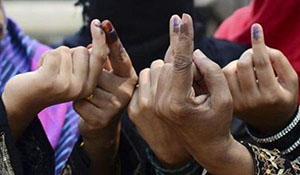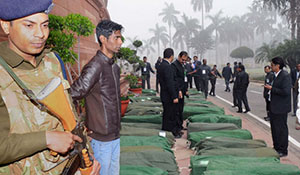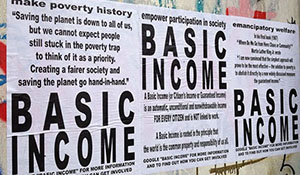
Arun Jaitley’s fourth budget presented last week tells us that there was lots of cash that was deposited by people. In the 50 day period between November 8 and December 31, the FM announced that deposits between Rs 2 lakh and Rs 80 lakh were made in about 1.09 crore accounts with an average deposit size of Rs 5.03 lakh. Deposits of more than 80 lakh were made in 1.48 lakh accounts with an average deposit size of Rs 3.31 crores.
There was a long justification of demonetization, but figures everyone was waiting for never came up. How much black money has been caught? What is the amount of cash that has finally been deposited in various banks? What windfall did the government receive? It has been a full month after December 31st and the country was waiting for some good news on this front.
As the speech went on, it was obvious that the demonetization exercise had failed miserably. There was no data and no money to show. As a result, we saw the budget failing to increase any expenditure significantly on anything except on transportation and on housing. Tax revenue, the FM said has gone up by 17% and will go up by 12% next year. Income tax goes up by 23%. This follows previous trends. Nothing has changed because of demonetization. The huge increase expected in the tax net and the tax base has clearly not happened nor does the government have a clue on how these would increase in the future.
The Union budget was remarkable for its plainness. There was nothing that could be converted into a headline. No significant change in any duty or tax. There was no new scheme launched. Neither were loan waivers handed out. People who were expecting money to be put in their Jan Dhan accounts were disappointed too. It was indeed a budget about nothing and a budget that said nothing. Those people who were relieved were those who were thankful that the FM did not deliver on some dreadful expectations like new taxes or caps on monthly expenditures. The stock market went up only because the FM did not do anything adventurous.
This year broke several traditions. Normally presented on the last day of February, this time we had the budget advanced to the 1st of February. Not even a sitting MP’s death could get the Speaker to move the date by a day or two. The morning started with a fair bit of uncertainty. There were murmurs in the air that the Parliament is not honouring tradition. Why was the Parliament adjourned in December when Jayalalitha died? However, the ruling party prevailed and the FM started his rather long budget speech as per schedule.
The other tradition broken was that the rail budget was merged with the Union budget. For the last 92 years, it was the rail budget that was presented first and the Union budget followed the next day. This year the FM spoke about railways for three minutes during his speech. He did not announce any increase in fares but declared that dynamic pricing will be introduced which means that fares will definitely go up, particularly in the peak seasons of festivals in October and during the summer vacations.
Nearly 140 people died in Kanpur in one of our worst accidents ever in November 2016. Last month the tragedy repeated when 39 people died in another accident near Konneru in AP. In the Kanpur case, the administration first tried to predictably blame it on terrorism from across the border but this was quickly rubbished by the UP Police. Railways require huge amounts of investment now, for refurbishing old tracks, putting in safety measures, new signaling devices and to become a clean mode of transportation. However, the FM had very little money to give and again hinted at privatization as a panacea.
We have a token reduction in income tax that benefits those earning between Rs 30000 and Rs 80000 a month. But it amounts to a saving of about 1000 a month only. That is why even this announcement failed to enthuse many of the government’s supporters. On corporate taxes, the government did something absolutely bizarre. It reduced corporate income tax rate for MSMEs with a turnover less than 50 crores from 30 to 25 per cent. We will now have companies that stop growing as soon as they reach the 50 crores limit or splitting into multiple entities
The corporate sector waiting for significant decreases in income tax rates is disappointed as nothing has changed, in fact most of them who earn more than a crore will now pay a 12% surcharge of personal income. Those asking for reforms and decrease on subsides see the opposite happening. To put it kindly what the FM has done is the best he could do in a situation the government has dragged itself into, by abruptly stopping India’s growth and attempting a strange experiment putting its own people and its economy at great risk.
There was another strange announcement that reduces the cash amount charities and political parties can accept. Why did the FM stop at Rs 2000? If the PM wants every citizen to go cashless, why not start from the top? Why should political parties be allowed to accept any amount in cash? The government lost a big opportunity to give a strong signal that they are serious about ending political corruption. Also, the FM declared that higher amounts can be given through bonds to protect the identity of the donor. Again, there is no explanation for why political donations need to be anonymous. Transparency dictates that all information be openly declared.













 | Quick links
| Quick links